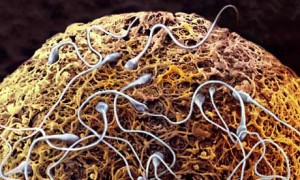October 18, 2013
 ABC World News reported that a study published online Oct. 17 “in the Journal of the American Medical Association found a significant increase in the number of women donating eggs to help infertile couples conceive.”
ABC World News reported that a study published online Oct. 17 “in the Journal of the American Medical Association found a significant increase in the number of women donating eggs to help infertile couples conceive.”
USA Today (10/17, Painter, 5.82M) reported, “Fertility clinics reported 18,306 procedures using fresh or frozen donated eggs in 2010, up from 10,801 in 2000, according to the study” which was also presented yesterday at the annual meeting of the American Society for Reproductive Medicine and the International Federation of Fertility Societies. What’s more, about “one-quarter of the women who used donor eggs in 2010 ended up with what doctors consider an optimum outcome: a single baby, born after at least 37 weeks of pregnancy, weighing at least 5.5 pounds, the study found,” an increase of 18.5% since 2000.
The AP (10/17, Tanner) reported that the study was conducted “by researchers at Emory University and the federal Centers for Disease Control and Prevention.”
The NBC News (10/17, Dahl, 6.79M) website reported that the study’s “findings were based on data reported to the” CDC “from 443 clinics” representing “93 percent of all fertility centers in the US.”
According to HealthDay (10/18, Doheny, 5K), the study “also found that the average age of donors (28) and recipients (41) didn’t change over time,” nor did “recipient age…affect birth outcomes.” An accompanying editorial pointed out the need for research into “the effect of ovarian stimulation on donors,” particularly in women who donate often and over the long term. The Time (10/17, Rayman, 13.4M) “Healthland” blog also covered the story.
Multiple egg donations may not negatively impact women’s future fertility. HealthDay (10/18, Dallas, 5K) reports that, according to a study presented at the joint meeting of the International Federation of Fertility Societies and the American Society for Reproductive Medicine and conducted by researchers from Weill Cornell Medical College in New York City, “undergoing multiple egg donations does not have a negative effect on women’s future fertility.” The study followed “women who completed at least five egg-donation cycles between January 2004 and April 2012.” Researchers find that “egg donors who undergo up to six cycles do not have evidence of depleting their ovarian reserve, which bodes well for their future fertility.”
Parents who conceived through donor eggs may wonder what to tell their children. HealthDay (10/18, Dallas, 5K) reports that, according to a study presented at a meeting of the International Federation of Fertility Societies and the American Society for Reproductive Medicine, “many people who used donor eggs to become parents are grappling with the issue of whether they should tell their children how they were conceived.” The study found that “up to 60 percent of donor-egg recipients weren’t sure if they would inform their child how they came to be for fear of facing cultural disapproval or being ostracized by their community.”
(Article courtesy of the American Medical Association)